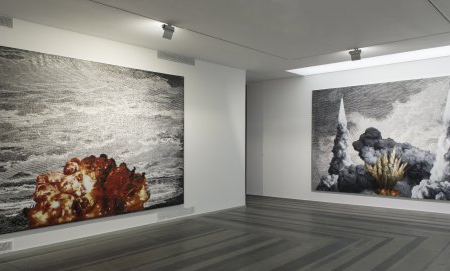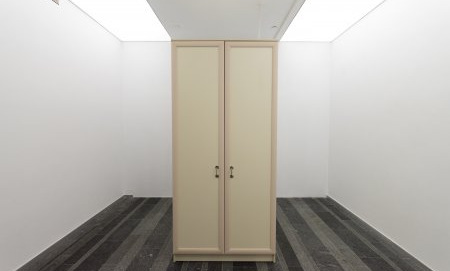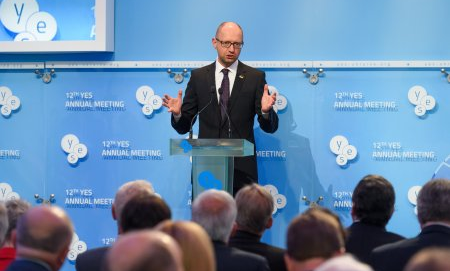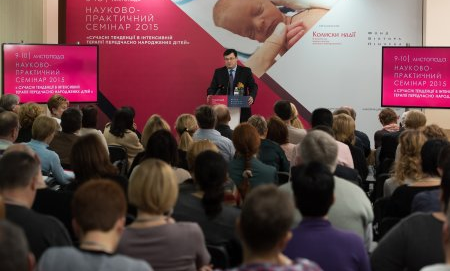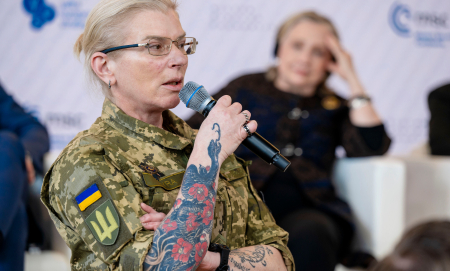News
Victor Pinchuk Foundation hosted discussion “Ukraine’s Defense of Freedom – How Will a Changing Global Context Influence the Parameters?” on the occasion of WEF 2024
On 17 Jan 2024, Victor Pinchuk Foundation hosted “Ukraine’s Defense of Freedom – How Will a Changing Global Context Influence the Parameters?” discussion on the occasion of WEF in Davos (Switzerland). The event was held as a part of the Deciding Your Tomorrow project, organized by Victor Pinchuk Foundation and PinchukArtCentre in cooperation with the Office of the President of Ukraine. The panel explored scenarios for the future of Ukraine and its allies in the fight against Russian aggression. Global political leaders, thinkers and activists discuss key aspects of Ukrainians’ defense of life and freedom and it offers a chance to revisit what is at stake in Ukraine.
Among the participants of the discussion were Maj. Gen. Vadym Skibitskyi, Deputy Chief of Ukraine’s Main Intelligence Directorate of MoD; Dmytro Kuleba, the Minister of Foreign Affairs of Ukraine; Wolfgang Ischinger, Ambassador (ret), President, MSC Foundation Council, YES Board Member; Kersti Kaljulaid, President of Estonia (2016-2021), YES Board member; John Herbst, Senior Director, Eurasia Center at the Atlantic Council, Former US Ambassador to Ukraine (2003-2006). The panel was moderated by Daniel Kurtz-Phelan, Editor-in-Chief, Foreign Affairs.
Maj-Gen Vadym Skibitskyi kicked off the discussion, sharing the conclusions of the analysis of Russia’s objectives in Ukraine for 2024 carried out by the Main Intelligence Directorate. He listed the one of the key findings:
- Russia will continue to occupy Ukraine’s territory using military power,
- The main goal in the short-term is the exhaustion of Ukraine’s Air Force offensive potential to create favourable conditions for Russia’s own counteroffensive,
- Russian military command will proceed with mobilization measures to prepare the troops for offensive operations,
- Russia will continue to conduct massive missile attacks and use UAVs to hit military and civilian targets on the territory of Ukraine.
“They (Russia) have set tactical and strategic goals. The actions of all their units will be aimed at continuing the hostilities. Mobilization measures continue in Russia, and they succeed in making up for the losses they incur on a daily basis. But the reserve they have today is not enough to carry out powerful strategic offensive operations in two or three directions, which Putin mentions from time to time and threatens the entire European society with opening the second front,” Vadym Skibitskyi summarized.
“Any stalemate means giving an opportunity to Russia to accumulate their forces and restore capabilities. We have seen this in 2015-16, when a ceasefire was declared in Donetsk and Luhansk regions, and we encountered another aggression in 2022,“ he added.
Picking up the line about a “stalemate” on the front line, John Herbst said: “All this conversation about the failed offensive is a combination of cynicism and uptightness. If we arm Ukraine correctly, there will be serious breakthroughs on the land. Of course, the talk of the stalemate never mentions what happened at sea, where we saw a stunning success of Ukraine, and basically opening the Western and Central Black Sea to shipping, with the Russian fleet hiding in Novorossiysk rather than being in Feodosiya or Sevastopol.”
“The issue is not the war in Ukraine. The issue is a rogue nuclear superpower with the economic feet of clay that wants to revise the post Cold War order, and even the post World War II order. That danger is coming for us if Putin wins in Ukraine; especially for the Baltic States, Poland and Romania,” John Herbst added.
Dmytro Kuleba commented on the importance of US aid to Ukraine: “This assistance is important financially and politically. It will send a message that the USA remains focused and committed, and this will resonate across the globe. If this assistance doesn’t arrive, the political consequences of this decision will be damaging.”
Dmytro Kuleba, however, downplayed a scenario of losing the war of attrition, arguing that collective GDP of allies providing assistance to Ukraine outweighs the one of Russia: “There are no facts that could galvanize any discussions about the fear of losing the war of attrition, the fear of fatigue or a stalemate. The countries standing by Ukraine’s side are 21 times more powerful than Russia.”
He also dismissed the prospect of Ukraine holding peace negotiations with Russia: “A couple of days ago Putin made it very clear - we are not going to give away what we gained. So what’s the point of talking to him? What is the subject of the conversation with him? He wants war. He will proceed with the war. I think that he will keep waging various wars until he dies.”
“We are fighting for the future of the world order as we know it and therefore we must win,” Dmytro Kuleba concluded.
Kersti Kaljulaid criticized NATO member states for not spending enough on defence. “Only 20 out of 31 NATO member states have military output at the level of 2% of the GDP”, she mentioned.
“This underspending means that our warehouses are empty and don’t have ammunition. This situation is not turning dangerous for Ukraine. This situation is becoming dangerous for NATO, for the free world,” Kersti Kaljulaid said.
Wolfgang Ischinger said: “It is increasingly important for the German population to understand that this is not only about doing something morally good or militarily relevant for Ukraine, but that it’s actually something that is important for fundamental security. If Ukraine goes down the drain, the next one in line is obvious.”
Photos are available here













